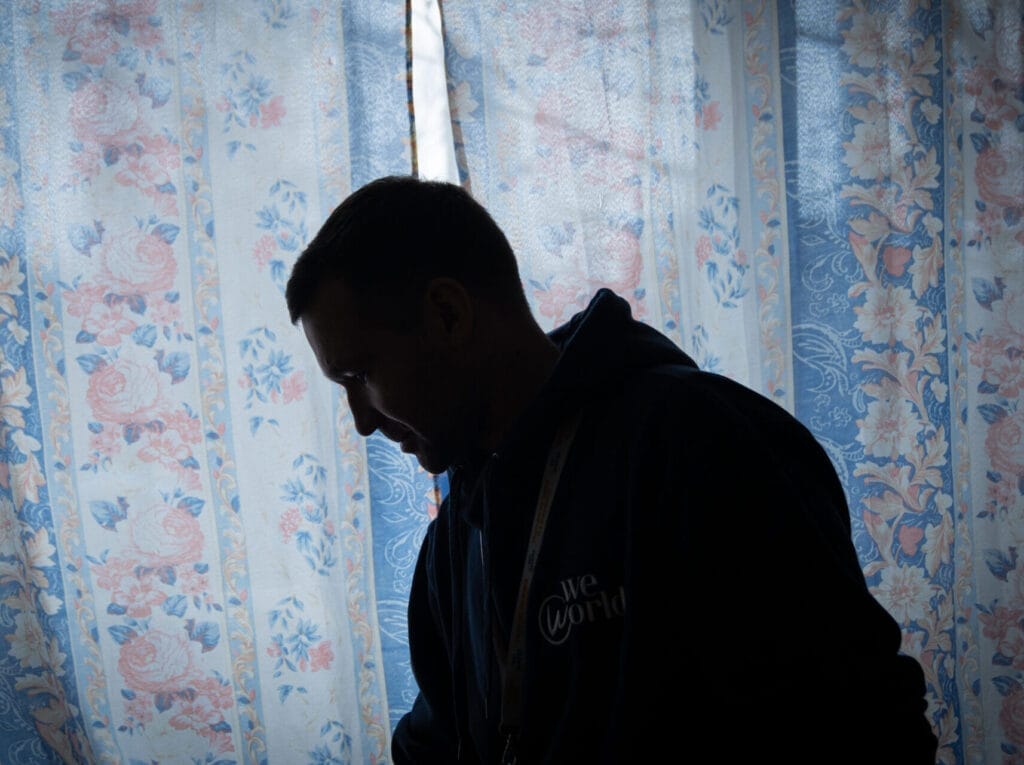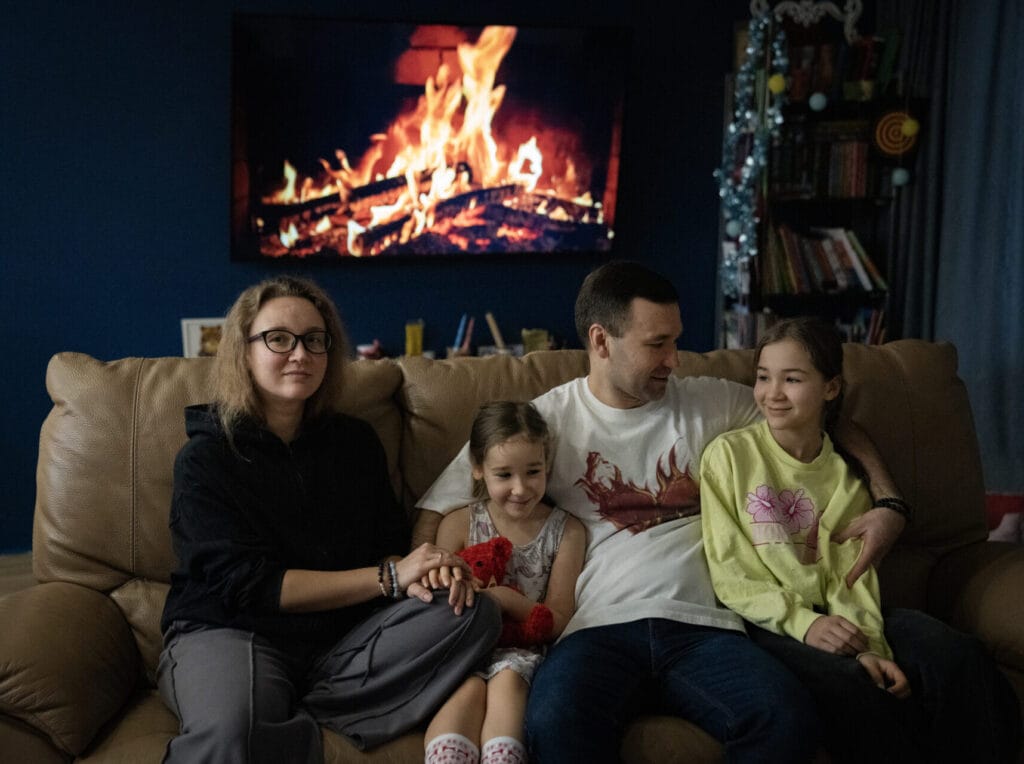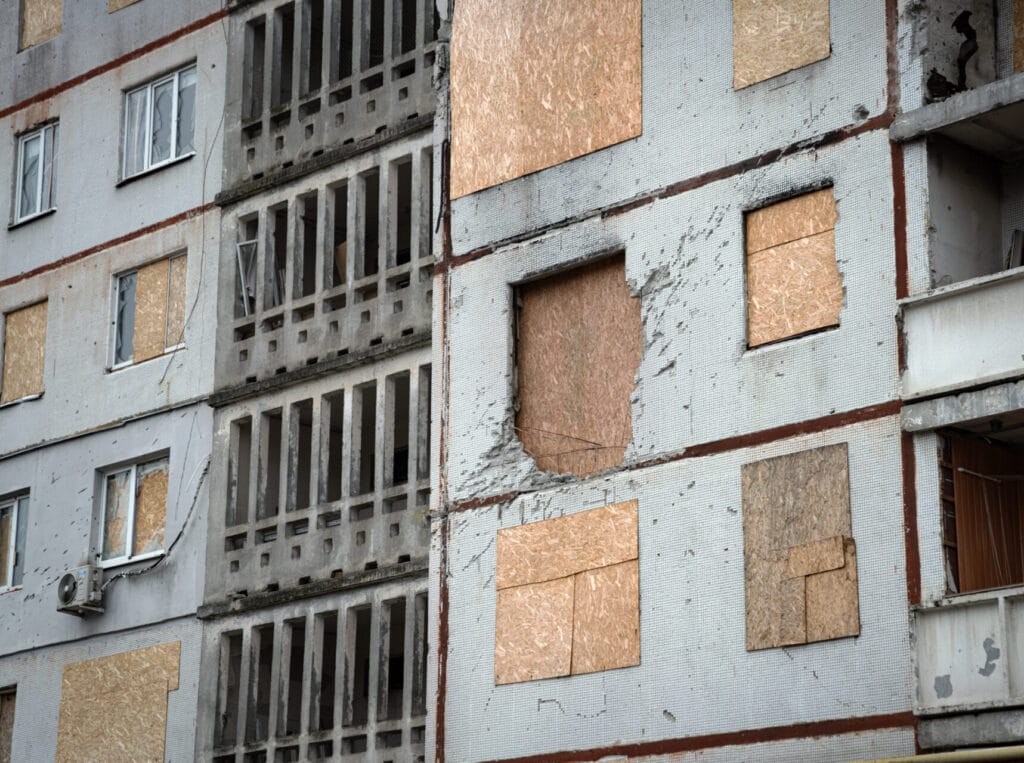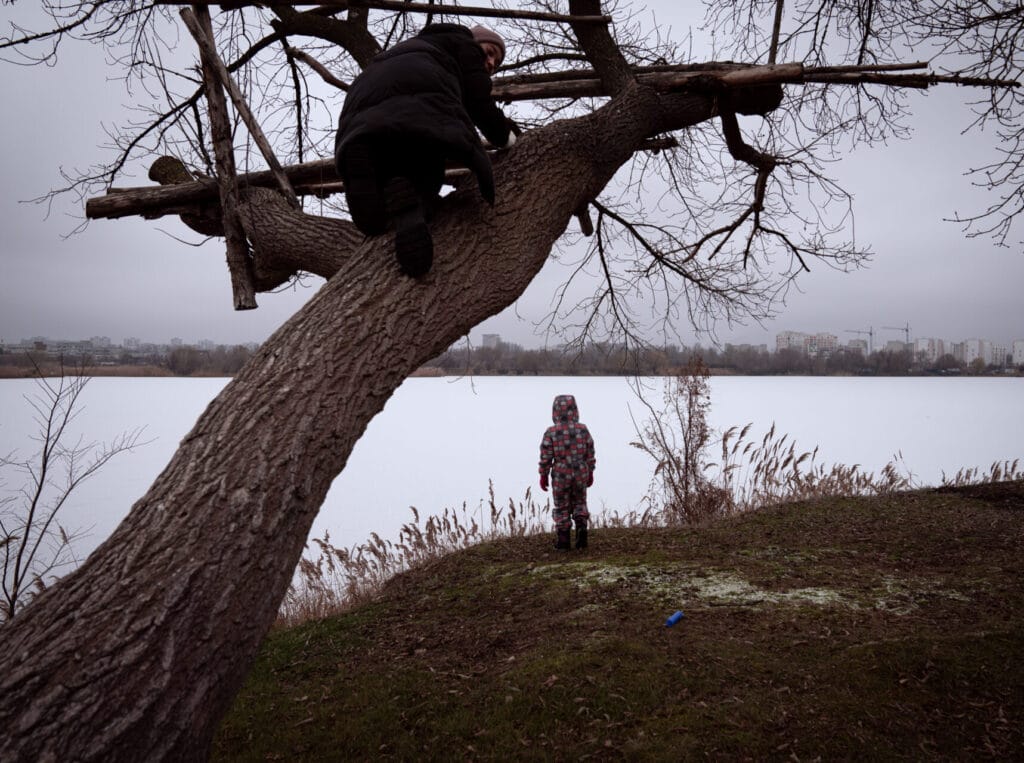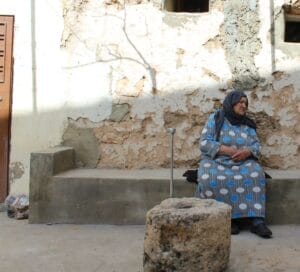
The conflict in Ukraine, which began in February 2022, is still ongoing and people who have remained close to the front lines, such as in the Kharkiv area, continue to live in precarious and difficult conditions. We met them together with Hugo Weber thanks to the ‘Kharkiv-Among the Ruins’ project: his photographs gave us the chance to tell their stories from a new and personal perspective, touching on hidden and intimate points. To learn more about their stories, go to ‘Kharkiv-Among the Ruins’ .
One of the protagonists of this project is Vasyl, who works with us as Project Officer - WASH Expert.
Many think that the war began in 2022 with the invasion of Ukraine by Russian troops. Do you agree?
Actually, this war didn't start in 2022 but much earlier, in 2014, with the conflict in Donbass. I'm originally from Donetsk, a city I've called home all my life. In 2014, however, many wanted the Donetsk and Luhansk provinces, located in the Donbass region, to be part of Russia, and this led to the outbreak of civil war. Many of us believed that the conflict would be short, but we realised that it wouldn't be so quick when Russian troops entered the Donbass.
What did you decide to do when you realised that the conflict wouldn't be resolved any time soon?
My family and I decided to move to Kharkiv, as the company I was working for had offered me the opportunity to move there. It was a really difficult transition: we were in the middle of a migration wave. Like us, many people were moving from Donetsk and Luhansk to Kharkiv, so finding accommodation was impossible. It was thanks to some friends that I managed to find a place as soon as I arrived in the city; it was a real miracle.
How has the situation changed since the second escalation of the war in 2022?
At that time I was working for a B2B sales company and my family had grown. The situation was very dangerous so we decided to move to Dnipro, in central Ukraine. On the morning of our departure, however, I discovered that all the roads were closed, explosions were echoing and we could see missiles crossing the city. A rocket passed just 20 metres from where I had taken refuge. In the chaos, all the exits were blocked and we were unable to leave.
In this situation of uncertainty, what could you do?
When the war started, we moved to the basement of a friend of mine and stayed there until 1 May 2022. During that time, the Saltivska district in the city of Kharkiv was bombarded with artillery, rockets and planes. In order to buy food, we had to go out in groups and most of the time we had to stay indoors. The streets were full of destroyed military vehicles, ruined buildings and stray dogs abandoned by people who had fled the city. For this reason, I wanted my family to leave and find refuge in Europe, but my wife and daughters didn't want to hear about it.
You just mentioned that you stayed in Dnipro until May 2022. What happened after that?
I was contacted by a former client who offered me a job with their NGO, which was involved in evacuating people from war-torn regions. The work was based in the city of Dnipro, so we all moved there in May 2022.
How did you experience this new beginning in Dnipro?
Even though we had moved to a safer area, the first few months were really tough because we were haunted by memories of the war and we couldn't sleep. On the one hand I was still living in fear of the past and on the other hand the work with the NGO gave me the opportunity to help other people. We were involved in the evacuation of civilians from the Donetsk region to Dnipro, Lviv and Odessa.
What did you take away from this experience?
This job allowed me to meet many people and every time it was really moving to see the relief in their eyes when they got off the buses and saw a more peaceful and safe environment.
When did you come into contact with WeWorld?
After a year and a half, in 2023, I received an offer from WeWorld to return to Kharkiv. I'm really glad I accepted because I'm very attached to that city. With WeWorld I'm in charge of repairing the water supply system, which was heavily damaged by the bombings. The materials we use are of excellent quality and this allows us to complete the repairs quickly.
Why do many people decide to return despite the situation still being very dangerous and unstable?
Many people have no alternative: they own apartments in these regions and cannot afford to start over elsewhere. The older generation in particular has limited options. Moreover, people grew up in these areas and have a deep affection for them.
What do you think the future holds for these areas?
I'm very worried about the future of Ukraine: the situation is still very precarious, living conditions are difficult and many people need assistance. However, I remain hopeful and I'm glad to be able to count on the support of an NGO like WeWorld, with whom we are carrying out some really useful projects. I hope that over time the attention will continue to remain high and that even in the post-war period there will still be solidarity towards us.

